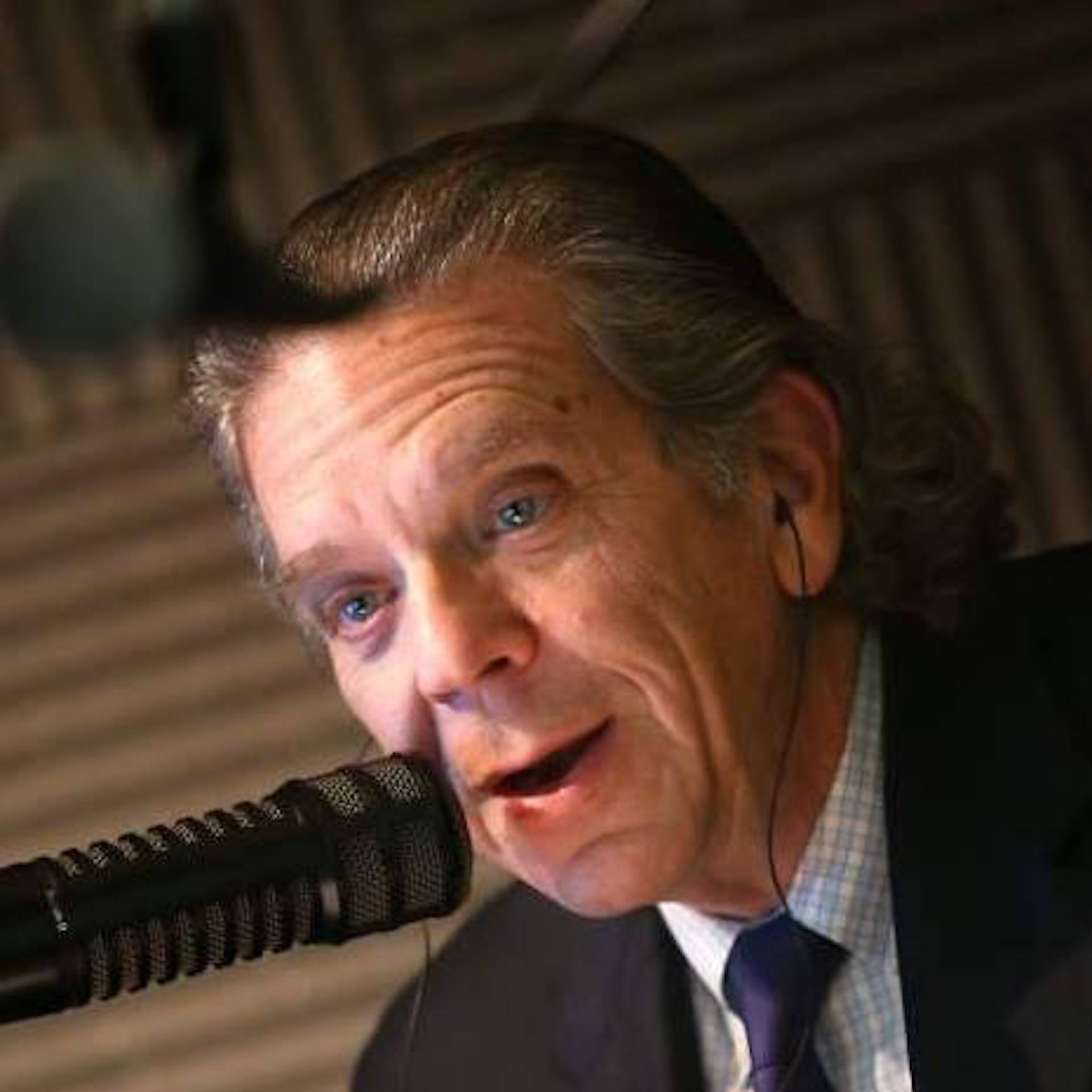Episodes
Tuesday Oct 27, 2020
Is Socialism Coming To America?
Tuesday Oct 27, 2020
Tuesday Oct 27, 2020
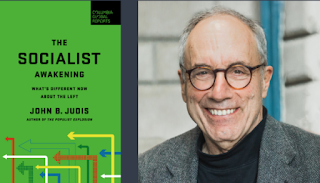 Bernie Sanders an avowed Democratic socialist, never a member of the Democratic party, ran two failed presidential campaigns, and yet he has succeeded in moving the Democratic Party to the left.
Bernie Sanders an avowed Democratic socialist, never a member of the Democratic party, ran two failed presidential campaigns, and yet he has succeeded in moving the Democratic Party to the left.AOC, is a one-term congresswoman with no previous political experience and yet her Democratic Socialist views have gotten attention on a national scale.
Particularly among young people, there is a growing dissatisfaction with the state of capitalism and free markets today. Even the likes of billionaires such as Chase’s Jamie Diamon and Salesforce’s Mark Benioff have talked about the need for a new more inclusive capitalism.
While this is essentially about the economy, it’s also about shifts in the social, cultural, and political landscape. The coronavirus has laid bare many of the lurking flaws in our system and the politics of the moment magnify everything.
Is this a tectonic shift in the politics of America or a temporary blip in an otherwise centrist nation?
John B. Judis breaks this down in his new work The Socialist Awakening: What's Different Now About the Left
Friday Oct 23, 2020
Are We So Divided that Secession Is The Only Answer?
Friday Oct 23, 2020
Friday Oct 23, 2020
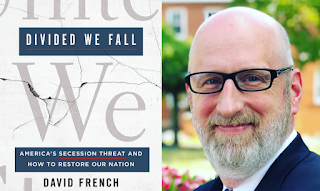 There was a time when there were things that united us. Through most of the 20th century for example they were things that had nothing to do with politics. They were movies and TV shows and books and sports and one of the three choices for getting our evening television news. We were for a long time part of a commonweal, a kind of national town square that provided our water cooler conversation around the things we had in common.
There was a time when there were things that united us. Through most of the 20th century for example they were things that had nothing to do with politics. They were movies and TV shows and books and sports and one of the three choices for getting our evening television news. We were for a long time part of a commonweal, a kind of national town square that provided our water cooler conversation around the things we had in common. Over the past 40 years all that changed. Technology and the proverbial long tail atomized us into our individuals interests. The explosion of thousands of sources of news, entertainment and information satisfied us, satiated us really, but took away our common bonds.
The result is where we are today. On the verge of session. Divided as never before in an environment so fragile and truly the house divided will not stand.
David French has been thinking and writing and living this experience. He brings it forward in Divided We Fall: America's Secession Threat and How to Restore Our Nation
Wednesday Oct 14, 2020
Jimmy Carter: A Good and Decent Presidency
Wednesday Oct 14, 2020
Wednesday Oct 14, 2020
 Before his massive failure with the Covid crises, someone remarked that Donald Trump may not turn out to be the worst President we ever had, but for sure he will be the worst person ever to be President. In many ways, Jimmy Carter is the opposite. He may not have been a great President, but he may have been one of the best people to ever be President.
Before his massive failure with the Covid crises, someone remarked that Donald Trump may not turn out to be the worst President we ever had, but for sure he will be the worst person ever to be President. In many ways, Jimmy Carter is the opposite. He may not have been a great President, but he may have been one of the best people to ever be President.It’s hard to say if the problems that Carter faced, the Soviet invasion of Afghanistan, inflation, unemployment, and the Iranian hostage crisis, might have happened to any President of that period. But history tells us they were the crisis he was dealt. And the nature of them brought out some of Carter's worst, not his best qualities.
It really is a job that’s about the nexus between crisis and character. Sometimes they line up and sometimes they don't. For Carter, it was often out of sync. Jonathan Alter tell the whole story in His Very Best: Jimmy Carter, a Life
Monday Oct 12, 2020
Is White Collar Corruption the New Normal?
Monday Oct 12, 2020
Monday Oct 12, 2020
While anger is still palpable in many places over those executives not not charged as for their role in the 2008/2009 financial meltdown, many smaller but similar white collar crimes have been committed with no oversight, no punishment and not even any more anger.
Has high end while collar crime simply become an acceptable cost of doing business? Has it become the collateral damage of capitalism that we are willing to accept? This is where Jennifer Taub takes us in Big Dirty Money: The Shocking Injustice and Unseen Cost of White Collar Crime
 .
.My conversation with Jennifer Taub:
Monday Oct 05, 2020
The Reverend Michael B. Curry: Advice for Times Like This Week/Month/Year
Monday Oct 05, 2020
Monday Oct 05, 2020
 The world has been through tough times before. Wars, depression, the threat of Armageddon, and racial hatred are all nothing new. And yet something seems different today. Perhaps it’s the result of a generation that focused on the self. The me generation, the culture of selfishness, the enduring power of the work of Ayn Rand and obsessive focus on self esteem. Maybe these things have come together to make this moment as corrosive as it feels.
The world has been through tough times before. Wars, depression, the threat of Armageddon, and racial hatred are all nothing new. And yet something seems different today. Perhaps it’s the result of a generation that focused on the self. The me generation, the culture of selfishness, the enduring power of the work of Ayn Rand and obsessive focus on self esteem. Maybe these things have come together to make this moment as corrosive as it feels. Tuesday Sep 29, 2020
Should Donald Trump Make Us Rethink the Reagan Legacy For the Worse?
Tuesday Sep 29, 2020
Tuesday Sep 29, 2020
 Day after day people ask “how we got here?” In fact we don’t need a time machine. All we need do is to look back at the political history of the past 50 years and and we can see exactly how we got here.
Day after day people ask “how we got here?” In fact we don’t need a time machine. All we need do is to look back at the political history of the past 50 years and and we can see exactly how we got here.Wednesday Sep 23, 2020
Science and Politics are Now Linked
Wednesday Sep 23, 2020
Wednesday Sep 23, 2020

Tuesday Sep 15, 2020
The Curse of the US/Britain Special Relationship
Tuesday Sep 15, 2020
Tuesday Sep 15, 2020
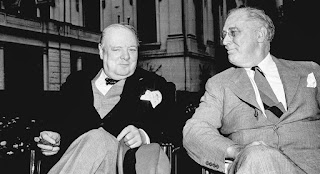 Back on the 4th of July I saw a hat that said, "Make America Great Britain Again." A good laugh, even more so when superimposed on the current relationship between the two countries.
Back on the 4th of July I saw a hat that said, "Make America Great Britain Again." A good laugh, even more so when superimposed on the current relationship between the two countries.
Certainly there is that much vaunted “special relationship''. Not just between the countries, in an abstract geopolitical way, but between leaders that have been shaping and reacting to the world at similar times and in similar ways for the past seventy-five years.
While Great Britain may have lost its empire, its connection to the US in contemporary times, has kept it relevant and dynamic. But after seventy-five years is that relationship due for a refresh? If so, perhaps it will require a degree of honesty about the relationship that has been heretofore lacking on both sides.
Ian Buruma looks at the contemporary history of that relationship in The Churchill Complex: The Curse of Being Special, from Winston and FDR to Trump and Brexit.
My conversation with Ian Buruma:
Monday Sep 14, 2020
A Conversation with Brian Stelter
Monday Sep 14, 2020
Monday Sep 14, 2020
 CNN's chief media correspondent Brian Stelter takes a deep look at Fox News, its power, and its stars in his new book Hoax: Donald Trump, Fox News, and the Dangerous Distortion of Truth.
CNN's chief media correspondent Brian Stelter takes a deep look at Fox News, its power, and its stars in his new book Hoax: Donald Trump, Fox News, and the Dangerous Distortion of Truth.
My conversation with Brian Stelter.
Tuesday Sep 08, 2020
A Spouse Also Runs: A Conversation with Chasten Buttigieg
Tuesday Sep 08, 2020
Tuesday Sep 08, 2020
 As the late Richard Ben Cramer so brilliantly detailed in his seminal book “What it Takes.” running for president, as a serious candidate, is one of the hardest, most grueling and challenging things one can do. Cramer wrote about the 1988 campaign, before the internet, before 24/7 news and yet he said even then that politics had become a kind of a public utility, with hot-and cold-running politics any time of the day or night.
As the late Richard Ben Cramer so brilliantly detailed in his seminal book “What it Takes.” running for president, as a serious candidate, is one of the hardest, most grueling and challenging things one can do. Cramer wrote about the 1988 campaign, before the internet, before 24/7 news and yet he said even then that politics had become a kind of a public utility, with hot-and cold-running politics any time of the day or night.
Today in our hyper politicized non stop news environment it’s even worse.
Now imagine breaking barriers and taboos along the way, as Pete Buttigieg did as the first LGBTQ candidate.
Just as challenging, again as Cramer wrote about, is being the spouse of the candidate. For Chasten Buttigieg, a 31 year old gay man with not political experience, he had only his own personal experience and history from which to draw upon.
He shares that journey in his new memoir I Have Something to Tell You: A Memoir.
My conversation with Chasten Buttigieg:
Tuesday Sep 01, 2020
Remember When Diplomacy and the Arts Once Mattered?
Tuesday Sep 01, 2020
Tuesday Sep 01, 2020
 Imagine a time when diplomacy mattered. When the arts mattered. And when they could actually work together to project America at its best. Oh how we might long for the days of the Cold War.
Imagine a time when diplomacy mattered. When the arts mattered. And when they could actually work together to project America at its best. Oh how we might long for the days of the Cold War.
Clausewitz said that diplomacy was simply war by other means. During the Cold War, that diplomacy took many forms. From Richard Nixon showing Khrushchev around an American Kitchen, to Ping Pong diplomacy with the Chinese
A little known form of diplomacy was the role that the arts played in the Cold War. Uniquely in the realm of dance in the hands of one of its great practitioners, and leaders, Martha Graham. Although Graham claimed she was not political, her company and her work were a real part of America’s Cold War propaganda apparatus.
Victoria Phillips tells the story in Martha Graham's Cold War: The Dance of American Diplomacy
My conversation with Victoria Phillips:
Thursday Aug 27, 2020
McCarthy to Cohn to Trump: A conversation with Larry Tye
Thursday Aug 27, 2020
Thursday Aug 27, 2020
 Most of you know or have lived in cities with long streets or boulevards and you know that some of the same stores repeat themselves over and over again. Starbucks, CVS, etc. The neighborhoods change, but some of the retail landmarks remain the same.
Most of you know or have lived in cities with long streets or boulevards and you know that some of the same stores repeat themselves over and over again. Starbucks, CVS, etc. The neighborhoods change, but some of the retail landmarks remain the same.
In a way, history is like that. It goes on and on. And while the neighborhoods often change, there are things along the way that repeat themselves over and over again. In American history, one of them is certainly racism and discrimination, but also our ongoing flirtation with authoritarianism. Our fascination with bullies, the appeal of strength that sometimes proves to be more than just meanness.... it’s really evil.
Whether it was Father Coughlin on radio, Joe Pyne on television, Huey Long in politics, or in the contemporary era, Joe McCarthy and Donald Trump.
The added reality is that each episode pushes the envelope of what’s acceptable. The predicate for new norms is laid out and the next would-be talk show host or political demagogue has to go further.
Perhaps no one pushed the envelope further than Joe McCarthy. So much so that the idea of McCarthyism became baked into our lexicon. Needless to say, now in the midst of one of those flirtations, it seems the perfect time to go back and look at Joe McCarthy with journalist and author Larry Tye, whose new book is Demagogue: The Life and Long Shadow of Senator Joe McCarthy.
My conversation with Larry Tye:
Tuesday Aug 25, 2020
Gail Sheehy: In Memoriam
Tuesday Aug 25, 2020
Tuesday Aug 25, 2020
 I guess it’s just that we are all getting older, but these In Memoriam programs are coming much too frequently lately…...Over the years I had the opportunity to do five interviews with Gail Sheehy. Beginning in May of 1998 we talked about everything from Men's Passages, to older women, Hillary Clinton, and the changes in middle America. Our last conversation was in the fall of 2014 upon the publication of her memoir Daring: My Passages: A Memoir
I guess it’s just that we are all getting older, but these In Memoriam programs are coming much too frequently lately…...Over the years I had the opportunity to do five interviews with Gail Sheehy. Beginning in May of 1998 we talked about everything from Men's Passages, to older women, Hillary Clinton, and the changes in middle America. Our last conversation was in the fall of 2014 upon the publication of her memoir Daring: My Passages: A Memoir.
My conversation with Gail Sheehy from October of 2014:
Sunday Aug 23, 2020
Only The Best People: Why The Best and The Brightest Sometimes Aren't
Sunday Aug 23, 2020
Sunday Aug 23, 2020
 Donald Trump came to power on a wave of distrust. Americans had lost faith in government, it’s institutions, and the ability of their government to be honest with them.
Donald Trump came to power on a wave of distrust. Americans had lost faith in government, it’s institutions, and the ability of their government to be honest with them.
It’s a through-line that begins perhaps with the assassination of John Kennedy, runs through the endless lies Americans endured about the Vietnam war, and continues through to the Iraq war; the lies about weapons of mass destruction.
And while Americans often want simple answers, the reality of policy, particularly foreign policy is far more nuanced and complex.
I have said over and over again of late, that I wish I could get into the time machine to read, 50 years from now, what historians will say about this period we are living through.
So it’s equally important that now, almost 20 years after 9/11 and 17 years after the start of the Iraq war that we can look with some perspective at the distrust that got us where we are today.
Again, the reality is nuanced, complicated and shaped by the foibles of human beings. Robert Draper tells that story in his new book To Start a War: How the Bush Administration Took America into Iraq
My conversation with Robert Draper:
Monday Aug 17, 2020
Why Are Millennials Feeling Left Behind?
Monday Aug 17, 2020
Monday Aug 17, 2020
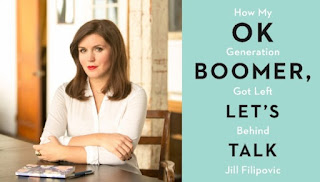 Every generation faces the challenges thrust upon it by the generation that came before. Today the millennials face the challenge of how they pick up the baton and carry it forward Their contribution, their imprimatur is still being written. Will, it simply be too scold those that came before, or as we see millennials doing in silicon valley redefining the very nature of society.
Every generation faces the challenges thrust upon it by the generation that came before. Today the millennials face the challenge of how they pick up the baton and carry it forward Their contribution, their imprimatur is still being written. Will, it simply be too scold those that came before, or as we see millennials doing in silicon valley redefining the very nature of society.
This is what Jill Filipovic bring to the fore in OK Boomer, Let's Talk: How My Generation Got Left Behind.
My conversation with Jill Filipovic:
Wednesday Aug 12, 2020
Nixon and The Dawn of the White Working-Class Revolution
Wednesday Aug 12, 2020
Wednesday Aug 12, 2020
 Over the 200 plus year history of political parties in the US, something our founders advised against, the same parties have, at different times, stood for different sets of ideas. The Federalists, the Whigs, the national Republican Party, the Democrats and others all have been made up of different coalitions at different times
Over the 200 plus year history of political parties in the US, something our founders advised against, the same parties have, at different times, stood for different sets of ideas. The Federalists, the Whigs, the national Republican Party, the Democrats and others all have been made up of different coalitions at different times
We all know for example that Lincoln and his Republicans were once the anti-slavery party. Oh how that’s changed.
The modern Democratic party really emerged with the New Deal coalition beginning with FDR in 1933. It was an amalgam that was considered the core of American liberalism. It was anchored in ethno-religious constituencies (Catholics, Jews, African Americans,) white Southerners, well-organized labor unions, urban machines, progressive intellectuals, and populist farm groups.
However, like all previous party coalitions, it would begin to splinter. Elements of the once liberal base of the new deal coalition would become part of the Republican party of Nixon and Reagan and Trump.
The story of how this happened is really the story of our modern politics that begins in 1970 and it’s the story that David Paul Kuhn tells in The Hardhat Riot: Nixon, New York City, and the Dawn of the White Working-Class Revolution.
My conversation with David Paul Kuhn:
Saturday Aug 08, 2020
Pete Hamill in His Own Words...and Voice
Saturday Aug 08, 2020
Saturday Aug 08, 2020
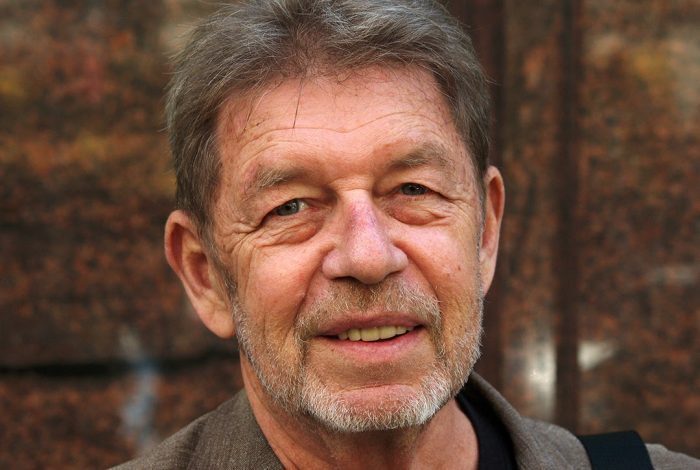 I had the distinct pleasure of speaking with and interviewing Pete Hamill six times since 1997. There was no subject that he could not hold forth on. Our discussions involved subjects ranging from immigration to tabloids, the lexicon of news to urban America, and even Frank Sinatra.
I had the distinct pleasure of speaking with and interviewing Pete Hamill six times since 1997. There was no subject that he could not hold forth on. Our discussions involved subjects ranging from immigration to tabloids, the lexicon of news to urban America, and even Frank Sinatra.
This podcast includes some lengthy excerpts from three of those conversations. First, in a conversation from June 2011, we talked about tabloids, the state of news today, and the way in which tabloids stitched communities together.
Our next conversation is great fun as Hamill talks about his book Why Sinatra Matters. Hamill argued that it’s not possible to understand the country without fully understanding the music and personality of Sinatra. He explains how he transformed the image of Italians and was the first example of American pop culture transported to the world. It was also a powerful way to learn more about both Prohibition and the Depression.
Last but not least, is my first conversation with Hamill from May 1997, just after the publication of his book Snow in August. It’s a look at immigration, the misguided power of television, and the story of a boy growing up in New York in the late 1940s. Because of the age of this conversation, the audiotape had not held up as well as I might have hoped, and I ask that you bear with a little 23-year decay of audio quality. However, I think it’s worth it.
Enjoy this reminiscence of the life and words of Pete Hamill.
Wednesday Aug 05, 2020
Marilyn
Wednesday Aug 05, 2020
Wednesday Aug 05, 2020
 58 years ago today, the world awoke to the death of Marilyn Monroe. At her death, she was already one of the most well known Americans of the twentieth century. In death she would become even more famous, steeped in mythology and contradiction, she would become a symbol of her times. The lens of her own dysfunction gave her a unique ken on post-war American. Today, looking at her life gives each of us a unique perspective on how far we’ve traveled in those 58 years.
58 years ago today, the world awoke to the death of Marilyn Monroe. At her death, she was already one of the most well known Americans of the twentieth century. In death she would become even more famous, steeped in mythology and contradiction, she would become a symbol of her times. The lens of her own dysfunction gave her a unique ken on post-war American. Today, looking at her life gives each of us a unique perspective on how far we’ve traveled in those 58 years.
This is the story that Charles Casillo tells in Marilyn Monroe: The Private Life of a Public Icon
My conversation with Charles Casillo:
Tuesday Aug 04, 2020
Why Are White Evangelicals Primed For Trump’s Fear-Mongering?
Tuesday Aug 04, 2020
Tuesday Aug 04, 2020
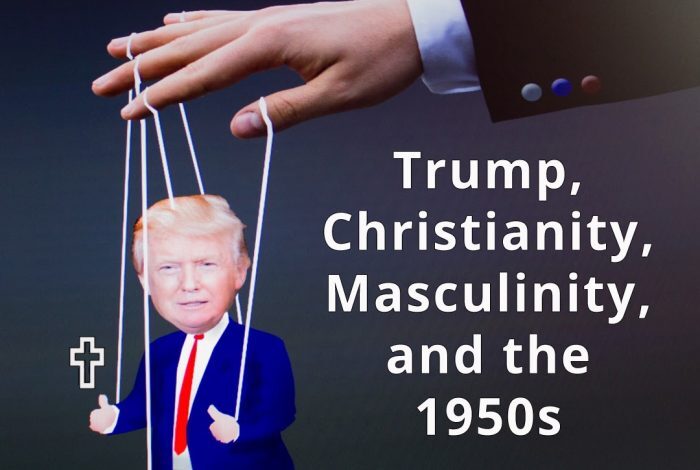 Why do self-described evangelicals overwhelmingly support an irreligious commander-in-chief? Why do megachurches demand to stay open in a pandemic, and why is the pro-life act of wearing a mask seen as antithetical to masculinity?
Why do self-described evangelicals overwhelmingly support an irreligious commander-in-chief? Why do megachurches demand to stay open in a pandemic, and why is the pro-life act of wearing a mask seen as antithetical to masculinity?
In this WhoWhatWhy podcast I talk with Calvin University scholar Kristin Du Mez, who sheds light on how white evangelicals gave America Donald Trump (81 percent voted for him in 2016).
Du Mez, the author of Jesus and John Wayne: How White Evangelicals Corrupted a Faith and Fractured a Nation, argues that it is not the intellectual forebearers of Christianity who mobilize the faith today, but muscular, mythical artificial heroes like Mel Gibson or John Wayne, idealized cowboys or soldiers. The toughness and swagger they embody conjures up a nostalgia for a simpler time, a nation unencumbered by activism for racial equality, women’s rights, and same-sex marriage.
An in-depth look at why evangelicals are Trump’s most unwavering supporters, and their plans for making Christianity great again.
My conversation with Kristin Du Mez:
Thursday Jul 30, 2020
Can Local Journalism Rewire Democracy?
Thursday Jul 30, 2020
Thursday Jul 30, 2020
 For journalism, it may be the best of times and the worst of times. The national media seems more vibrant than ever. The New York Times, the Washington Post, the Wall Street Journal, as well as the cable news networks are thriving For these outlets the transition to digital was painful, but somewhat successful.
For journalism, it may be the best of times and the worst of times. The national media seems more vibrant than ever. The New York Times, the Washington Post, the Wall Street Journal, as well as the cable news networks are thriving For these outlets the transition to digital was painful, but somewhat successful.
For local news, the story of what happing in your neighborhood, your school board, your city council, is a very different story. Thousands of local newspapers and local radio stations have shut down. The economics of the enterprise has proven to be unsustainable, and even large regional papers in places like L.A., Chicago, and Miami, have proven to be problematic at best and striped by hedge funds at worst.
All of this begs the question of whether our political, cultural, and social divide stems from the top, as is assumed, or whether the hollowing out of the news in our communities, something that should be bringing us together, is at the heart of what’s wrong.
It was the great NY Mayor Fiorello LaGuardia who said that there is no Republican or Democratic way to clean the streets. His comments remind us that locally, there is only the common community interest. Take that away and what’s left is all the bad stuff.
This is with Washington Post media columnist and former NY Times public editor Margaret Sullivan examines in her new book Ghosting the News: Local Journalism and the Crisis of American Democracy
My conversation with Margaret Sullivan:
Sunday Jul 26, 2020
Do We Have The Strength and Wisdom to BEGIN AGAIN?
Sunday Jul 26, 2020
Sunday Jul 26, 2020
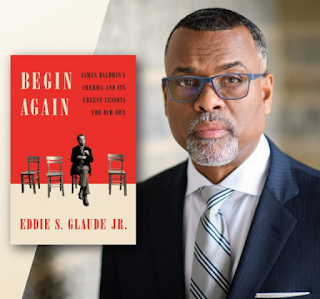 It’s rare that the laws of physics and our ideas of race and politics find common ground.Newton’s third law of motion says that for every action, there is an equal and opposite reaction. The American story of the struggle for racial equality seems to be subject to that law.
It’s rare that the laws of physics and our ideas of race and politics find common ground.Newton’s third law of motion says that for every action, there is an equal and opposite reaction. The American story of the struggle for racial equality seems to be subject to that law.
As the Founding gave way to the Civil War, and reconstruction to Jim Crow and segregation, and the civil rights struggle of the ’60s gave way to law and order and Richard Nixon, the election of our first black president would give us Donald Trump and where we are today.
One wonders what it is, particularly around the subject of race and the desire to establish a truly multiracial democracy that drives these contradictory reactions.
Equally, what toll does this whipsawing back and forth take on our democratic experiment, it’s people and those left behind when the moral weather changes. It’s no wonder we are anxious, angry, and exhausted
That just the surface of Professor Eddie Glaude’s new book Begin Again: James Baldwin's America and Its Urgent Lessons for Our Own
My conversation with Eddie Glaude Jr.
Friday Jul 24, 2020
The High Cost of Free Speech
Friday Jul 24, 2020
Friday Jul 24, 2020
 We seem to be facing a time when the speech police are everywhere, a time when even the majority of progressive people simply seem to be losing faith in the value of free speech, all the while seeming to want to narrow the words that we can use.
We seem to be facing a time when the speech police are everywhere, a time when even the majority of progressive people simply seem to be losing faith in the value of free speech, all the while seeming to want to narrow the words that we can use.
“Don’t you see,” George Orwell wrote in 1984, “the whole of newspeak is to narrow the range of thought. In the end,” he says, “We shall make thoughtcrime literally impossible because there will be no words in which to express it.” Just what does free speech mean? Is it under threat today from the left and/or the right? Why is it also about safety and why are our colleges and universities front and center in this debate?
To talk about this I am joined by one of the intellectual guiding lights of the discussion of free speech, Professor Stanley Fish.
My conversation with Professor Stanley Fish:
Monday Jul 20, 2020
Christopher Dickey: A Remembrance
Monday Jul 20, 2020
Monday Jul 20, 2020
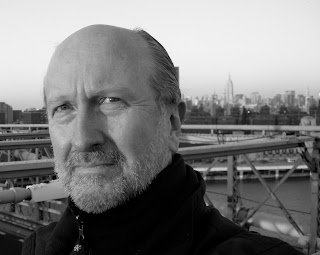 Christopher Dickey reported from war zones and published many books, including a powerful memoir about growing up with his father, the poet, and author James Dickey.
Christopher Dickey reported from war zones and published many books, including a powerful memoir about growing up with his father, the poet, and author James Dickey.
I had the opportunity to speak with Dickey several times over the years, usually about geopolitical hotspots around the world. Places where his unique reporting skills enabled him to see not only the politics but the cultural heart of what he was reporting on. His reports and books were more than just words and analyses.
However, our most memorable conversation and one I share here was about his memoir Summer of Deliverance. Memoirs, have over recent years, become a genre onto themselves. What Dickey uniquely does is to turn the tables and actually report on himself.
My conversation from September of 1998 with Christopher Dickey.
Wednesday Jul 15, 2020
The Unexpected Role of Feminism in Mass Incarceration
Wednesday Jul 15, 2020
Wednesday Jul 15, 2020
 We regularly go through paroxysms of demanding law and order. It's a form of political rhetoric that while it has roots all the way back in the 16th century, is with us once again today.
We regularly go through paroxysms of demanding law and order. It's a form of political rhetoric that while it has roots all the way back in the 16th century, is with us once again today.
In our contemporary history we watched Nixon in 1968, New York in the 70s and then were was 1994. A time when the law and order obsession seemed to reach some kind of peak
Rudy Giuliani had become Mayor of New York, the Simpson case shined an arc-light on domestic violence, California passed “three strikes,” and Congress passed the Violence Against Women Act.
It was a kind of perfect storm of both enforcing law, protecting women, and injecting steroids into the business of mass incarceration.
How this ultimately worked out for women, and the broad impact of these efforts on the criminal justice system is a subject that University of Colorado law professor Aya Gruber tackles in her new book The Feminist War on Crime: The Unexpected Role of Women's Liberation in Mass Incarceration.
My conversation with Aya Gruber:
Saturday Jul 11, 2020
Without Newt there is no Trump: How we Got Here.
Saturday Jul 11, 2020
Saturday Jul 11, 2020
 Donald Trump’s presidency was not an immaculate conception. Rather, the result of 30 years of increased hyper-partisanship, the reshaping of the Republican party, the rise of Rush Limbaugh and talk radio, Robert Ailes and Fox Television, and Newt Gingrich. They all contributed to the pugilistic style of American politics. But perhaps Gingrich did the most damage.
Donald Trump’s presidency was not an immaculate conception. Rather, the result of 30 years of increased hyper-partisanship, the reshaping of the Republican party, the rise of Rush Limbaugh and talk radio, Robert Ailes and Fox Television, and Newt Gingrich. They all contributed to the pugilistic style of American politics. But perhaps Gingrich did the most damage.
It’s arguable that if Gingrich hadn’t come along, others would have picked up the mantle of this style that lead us directly to where we are today. But Gingrich was uniquely suited to the moment.Julian Zelizer tries to answer in his new book Burning Down the House: Newt Gingrich, the Fall of a Speaker, and the Rise of the New Republican Party
Understanding him, maybe a big part of that question that gets asked every day, amidst death, unemployment, and anger, how did we get there. That’s what historian and professor
My conversation with Julian Zelizer:
Friday Jul 10, 2020
Is It 1968 All Over Again?
Friday Jul 10, 2020
Friday Jul 10, 2020
 Then, as now, there was pent-up frustration, which boiled over, particularly in many poor black neighborhoods setting off riots that rampaged out of control. At the time, many Americans blamed the riots on what they saw as misplaced black rage and often vague outside agitators.
Then, as now, there was pent-up frustration, which boiled over, particularly in many poor black neighborhoods setting off riots that rampaged out of control. At the time, many Americans blamed the riots on what they saw as misplaced black rage and often vague outside agitators.
But in March 1968, the Kerner Commission Report turned those assumptions on their head. It declared that white racism, not black anger, was at the root of American turmoil. It talked about bad policing practices, a flawed justice system, unscrupulous consumer credit practices, poor or inadequate housing, high unemployment, voter suppression and other culturally embedded forms of racial discrimination that all combined to ignite the fuse on the streets of African American neighborhoods.
“White society,” the presidentially-appointed panel reported, “is deeply implicated in the creation of the ghetto.” “The nation,” the Kerner Commission warned, “was so divided that the United States was poised to fracture into two radically unequal societies, one black and one white.”
Today, there is only one living member of that commission, and he also happens to be the oldest living current or former United States senator. He was once a candidate for president to the United States. He served as chairman of the Democratic National Committee. He served for two terms as a senator from Oklahoma. He is Senator Fred Harris.
My WhoWhatWhy conversation with Senator Fred Harris:
Tuesday Jun 30, 2020
The Microbiome is Revolutionizing Medicine and Yes, Probiotics Matter
Tuesday Jun 30, 2020
Tuesday Jun 30, 2020
 Beyond the virus we fear most, we are also surrounded by bacteria, viruses, fungi and parasites. But wait, no need to reach for the Purell every time. In fact, these things represent what is called our microbiome. It accounts for as much as 90% of our cells, and its positive impact on our health is immeasurable.
Beyond the virus we fear most, we are also surrounded by bacteria, viruses, fungi and parasites. But wait, no need to reach for the Purell every time. In fact, these things represent what is called our microbiome. It accounts for as much as 90% of our cells, and its positive impact on our health is immeasurable.
However, as a result of antibiotics, the food we eat, urbanization and other wonders of modern world, we have done things in the name of “do no harm,” which just might be making us sicker.
Today, it’s as if this long-suffering field of research has suddenly been rediscovered. Back in 2016, when we had a White House that still believed in science, the office of science and technology announced a One Hundred and Twenty-One million dollar initiative for research into the microbiome.
Professor Rodney Dietert, has been doing this research and talking about this for a long time. He details it in The Human Superorganism: How The Microbiome is Revolutionizing The Pursuit of a Healthy Life.
My Conversation with Rodney Dietert:
Sunday Jun 28, 2020
The Genetic Superiority of Women
Sunday Jun 28, 2020
Sunday Jun 28, 2020
 In the current pandemic, we have seen men succumb to COVID 19 at far greater rates than women. A lot of theories have been expounded as to why. And many theories have to do with the disease itself and its inherent impact on the human body.
In the current pandemic, we have seen men succumb to COVID 19 at far greater rates than women. A lot of theories have been expounded as to why. And many theories have to do with the disease itself and its inherent impact on the human body.
In fact, the reasons may be much more fundamental. They may be reasons that transcend the disease and may be directly related to deeper biological differences between men and women.
Differences that have applications in the treatment of virtually every disease, from colds to cancer. Clearly differences in chromosome may be the ultimate customization of medicine. Understanding this is the work of Dr. Sharon Moalem. He’s an award-winning scientist and physician whose latest book is The Better Half: On the Genetic Superiority of Women.
My conversation with Dr. Sharon Moalem:
Thursday Jun 25, 2020
Lincoln Almost Never Made It To The White House
Thursday Jun 25, 2020
Thursday Jun 25, 2020
 Early in his political career, before he ever became president, Lincoln said referring to America, that “a house divided against itself cannot stand.” Little did Lincoln know at the time that he would one day stand at the fulcrum of that division. And that he might become crushed by the weight of it. Not only metaphorically, or ultimately in Ford’s Theater, but before he ever became president.
Early in his political career, before he ever became president, Lincoln said referring to America, that “a house divided against itself cannot stand.” Little did Lincoln know at the time that he would one day stand at the fulcrum of that division. And that he might become crushed by the weight of it. Not only metaphorically, or ultimately in Ford’s Theater, but before he ever became president.
With Americans so angry today, with tempers, and temperatures so high we admirer the great job that the secret service does of protecting Presidents of both parties.
For Lincoln, the end could have come even before he took office. In a little know footnote of history, Lincoln had to sneak his way into Washington, to prevent an assassination attempt by pro-slavery excrements. That the backbone of historian Brad Meltzer’s new book The Lincoln Conspiracy: The Secret Plot to Kill America's 16th President--and Why It Failed
My conversation with Brad Meltzer:
Sunday Jun 21, 2020
Maybe There Were Some Smart People in Oklahoma
Sunday Jun 21, 2020
Sunday Jun 21, 2020
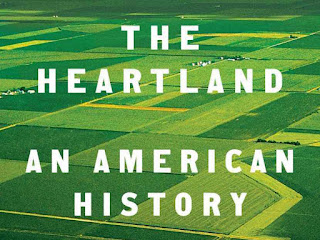 Along with the ideological divisions that are part of our political and social life today there are also the geographical divisions that essentially, at least as far as conventional wisdom goes, mirror those same divisions.
Along with the ideological divisions that are part of our political and social life today there are also the geographical divisions that essentially, at least as far as conventional wisdom goes, mirror those same divisions.
Those of us on the East and West coast, have a kind of bond that would make you think that the Atlantic and Pacific are one. That the sun rises on one coast and sets on the other and nothing much else seems to matter.
After all, it’s just “flyover country.” It’s all the same, right? Flat, backward, disconnected from the global community and connected only to the drumbeat of Fox News.
But suppose that weren’t true. Suppose there was more vibrancy and wisdom and energy there than we thought. Could a better understanding of history and physical place, perhaps give us a better understating of the lives of the people that inhabit it? That the view of Professor Kristin Hoganson in her new work The Heartland: An American History
My conversation with Kristin Hoganson:
Monday Jun 15, 2020
Accepting Science is Actually a Test of Character
Monday Jun 15, 2020
Monday Jun 15, 2020
 It was George Orwell who said that “to see what is in front of one’s nose needs constant struggle.”
It was George Orwell who said that “to see what is in front of one’s nose needs constant struggle.”
Sometimes we are all trapped in our inability to see what is in front of us. However in the realm of science sometimes the facts should simply speak for themselves...and yet there have been those through history that have denied science. Mostly because it didn’t comport with their agenda. Sometimes they were blinded by the obvious and sometimes it was antithetical to the false gods of religion for the expediency of politics.
Yet the ability to accept science, almost more than anything else, shows the character of the people and nations, as they either evolve or head back to the primordial stew of ignorance.
This has been an issue from Galileo right up to the onset of COVID 19. To explain how we’re still dealing with the same ignorance I’m joined by Mario Livio, the author of Galileo: And the Science Deniers
My conversation with Mario Livio:
Tuesday Jun 09, 2020
It's Economic Dignity, Stupid
Tuesday Jun 09, 2020
Tuesday Jun 09, 2020
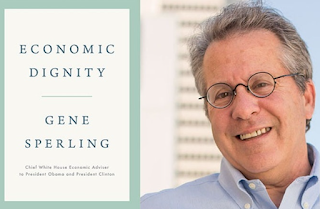 I’m sure you all remember when Bill Clinton ran for President in 1992, James Carville’s precinct slogan, “it’s the economy stupid” was a fundamental foundation of the campaign.
I’m sure you all remember when Bill Clinton ran for President in 1992, James Carville’s precinct slogan, “it’s the economy stupid” was a fundamental foundation of the campaign.
It was effective because it captured, in perhaps a more innocent time, the essence of the economy that personally impacted every single American.
Today, almost 30 years and a political chasm latter it seems there are many economies. The Wall Street economy, the economy of the one-percent, the middle class, those struggling to make ends meet, and those totally left behind. The “economy” is no longer a catchword that is a big tent for all.
Just look at the current situation as 35 million Americans are out of work, lines at food banks stretch for miles, and yet the stock markets are hitting new highs.
Today, the current pandemic and its resultant economic crises are an accelerant to further these divisions. So as we look out amidst massive unemployment and an even greater economic divide and we wonder if there might be a common goal that the economy should represent and strive for?
Former Clinton and Obama economic advisor Gene Sperling things so and he outlines it in Economic Dignity
My conversation with Gene Sperling:
Thursday Jun 04, 2020
Not Your Father's CIA
Thursday Jun 04, 2020
Thursday Jun 04, 2020
 When looking at the world of the CIA, spycraft, and espionage, it fair to say that the images of both WWII and particularly the Cold War, shape our vision. Unfortunately, it does not always allow us to understand the reinvented world of 21st-century coverts action and government secrecy.
When looking at the world of the CIA, spycraft, and espionage, it fair to say that the images of both WWII and particularly the Cold War, shape our vision. Unfortunately, it does not always allow us to understand the reinvented world of 21st-century coverts action and government secrecy.
Joining me to explore this, as he has done in his nine previous books about the CIA, is Washington Post global affairs columnist David Ignatius. His new book The Paladin: he takes us inside today's very different world of spycraft.
My conversation with David Ignatius:
Wednesday May 27, 2020
It Is A Small World After All
Wednesday May 27, 2020
Wednesday May 27, 2020
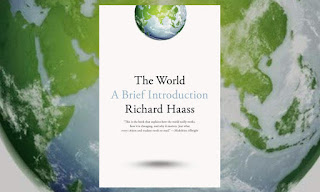 Most of you have heard about the Butterfly Effect. The butterfly flapping its wings in New Mexico can cause a hurricane in China. It may take a very long time, but the connection is real. If the butterfly had not flapped its wings at just the right point in space/time, the hurricane would not have happened. It’s how the world works today. Except with modern communications, it happens at warp speed. Coronavirus and terrorism are just two of many examples
Most of you have heard about the Butterfly Effect. The butterfly flapping its wings in New Mexico can cause a hurricane in China. It may take a very long time, but the connection is real. If the butterfly had not flapped its wings at just the right point in space/time, the hurricane would not have happened. It’s how the world works today. Except with modern communications, it happens at warp speed. Coronavirus and terrorism are just two of many examples
Even for those that try and eschew globalization, the protest is futile. The world, its peoples, its governments and yes its companies are deeply interwoven and interconnected. It why we do ourselves such a disservice as citizens and as a nation if
we don’t truly understand the world and our place in it.
Few understand this as well as Richard Haass who takes us through it in The World: A Brief Introduction
My conversation with Richard Haass:
Sunday May 24, 2020
A True Story of Piracy, Power, and History's First Global Manhunt
Sunday May 24, 2020
Sunday May 24, 2020
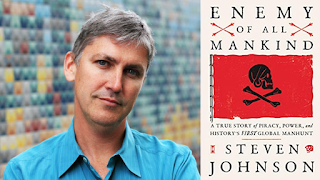 Who knew that 17th-century pirates were both the original terrorists and the original globalists. We mark seminal events that we are living through and decide which ones are important and which re not. Yet often time and history tell a different story. Sometimes it’s the small events, tiny inflection, or hinge points in history that seep into all the tentacles going out into the future.
Who knew that 17th-century pirates were both the original terrorists and the original globalists. We mark seminal events that we are living through and decide which ones are important and which re not. Yet often time and history tell a different story. Sometimes it’s the small events, tiny inflection, or hinge points in history that seep into all the tentacles going out into the future.
Steven Johnson, in his new book Enemy of All Mankind: A True Story of Piracy, Power, and History's First Global Manhunt finds one of those points and gives us the recipes of how it’s become part of today’s global and cultural diet
My conversation with Steven Johnson:
Tuesday May 19, 2020
Where Did 24/7 News Come From?
Tuesday May 19, 2020
Tuesday May 19, 2020
 When we say, almost without much thought today, that we live in an era of 24/7 news and information, we don’t often think about the attribution of this state of affairs. No, it didn’t come from Mark Zuckerberg and Facebook, or Jack Dorsey and Twitter. In fact, it wasn’t the internet at all. It was Ted Turner, a guy who in the 1970s was hustling billboards and promoting a UHF TV station in Atlanta. Until he went ahead with the crazy idea of launching a 24/7 news channel in the form of CNN and that, as they say, changed everything.
When we say, almost without much thought today, that we live in an era of 24/7 news and information, we don’t often think about the attribution of this state of affairs. No, it didn’t come from Mark Zuckerberg and Facebook, or Jack Dorsey and Twitter. In fact, it wasn’t the internet at all. It was Ted Turner, a guy who in the 1970s was hustling billboards and promoting a UHF TV station in Atlanta. Until he went ahead with the crazy idea of launching a 24/7 news channel in the form of CNN and that, as they say, changed everything.
What he created not only impacted television and network news, and gave rise to the likes of MSNBC and Fox, but it changed the entire landscape of the delivery of news. It changed everything from the small-town newspaper to the N.Y. Times and the Washington Post. It was one of those seminal moments, a hinge point in the history. of television, of news and media as we know it.
It’s the subject of the new book by author and journalist Lisa Napoli, Up All Night: Ted Turner, CNN, and the Birth of 24-Hour News
My conversation with Lisa Napoli:
Tuesday May 12, 2020
The Truth About America's "Deep State"
Tuesday May 12, 2020
Tuesday May 12, 2020
 Ever since the post-war years both fear and complexity have increased. Fear of the bomb, of communists, war, political assassination, and 9/11. Fear of technology, of the growth and concentration of business, and the growing increase in the size and power of government. Ideas that are often impossible to get one’s head around and to fully understand.
Ever since the post-war years both fear and complexity have increased. Fear of the bomb, of communists, war, political assassination, and 9/11. Fear of technology, of the growth and concentration of business, and the growing increase in the size and power of government. Ideas that are often impossible to get one’s head around and to fully understand.
Much of our division today is about how we have navigated those fears and traumas. What has emerged it seems is two central narratives that have their origins early in the mid 20th century and are still evolving today. One that the blame lies with the military-industrial complex. With shadowy generals and CIA agents and covert operatives.
On the other side, the blame goes to governments. To faceless nameless bureaucrats. Educated elites who think they know better than what Nixon called the silent majority. The group t
hat Reagan wanted to shrink small enough to go down a bathtub drain. This became known as the “deep state.”
The battle between these two world views, one on the left today and one on the right provides much of fuel for our partisanship.
How we got here, and what the deep state really is, or even if there is one, is at the core of two time Pulitzer Prize winner David Rhode's In Deep: The FBI, the CIA, and the Truth about America's "Deep State"
Friday May 08, 2020
Religious Nationalism and the Reopening of America
Friday May 08, 2020
Friday May 08, 2020
 Even in these troubled times, we are divided. At a time when we should all be pulling in the same direction, even issues of life and death are political. Politicians who have professed to be pro-life are suddenly more pro-money regardless of the body count. Many have asked recently, particularly in the push to prematurely open the economy, how we got here. The answer has nothing and everything to do with our current politics, but the roots go much deeper. The line is very straight between what’s ripping us apart today and a religious movement masquerading as a social movement that has roots in the late 1970s.
Even in these troubled times, we are divided. At a time when we should all be pulling in the same direction, even issues of life and death are political. Politicians who have professed to be pro-life are suddenly more pro-money regardless of the body count. Many have asked recently, particularly in the push to prematurely open the economy, how we got here. The answer has nothing and everything to do with our current politics, but the roots go much deeper. The line is very straight between what’s ripping us apart today and a religious movement masquerading as a social movement that has roots in the late 1970s.
:
Tuesday May 05, 2020
China and Its Ongoing Industrial Espionage
Tuesday May 05, 2020
Tuesday May 05, 2020
 There are so many stories today about the economic competition between China and the US. Competition in technology, in 5G in AI, and every other trendy high tech endeavor. However, the same competition exists in many other areas of industry, including the staid world of agriculture.
There are so many stories today about the economic competition between China and the US. Competition in technology, in 5G in AI, and every other trendy high tech endeavor. However, the same competition exists in many other areas of industry, including the staid world of agriculture.
In fact, it is this world of genetically modified agriculture that may, more than the trendy tech, shape the future of the peoples of both China and the US.
It’s no wonder then that industrial espionage is rampant in this area and its national security implications go way behind missiles and planes and communication.
That’s the world that Mara Hvistendahl takes us into in her latest book The Scientist and the Spy: A True Story of China, the FBI, and Industrial Espionage
My conversation with Mara Hvistendahl
Tuesday Apr 28, 2020
"When Someone Tells You Who They Are, Believe Them"
Tuesday Apr 28, 2020
Tuesday Apr 28, 2020
 People often talk about certain groups of immigrants that have come to America and wonder why some groups are so successful.
People often talk about certain groups of immigrants that have come to America and wonder why some groups are so successful.
One of the reasons is that it is a self-selecting population. To escape one’s country, whether it was fleeing Germany in the 1940s or Cambodia or Vietnam in the 1960s or Central America today, takes a remarkable degree of perseverance and courage. It’s often a high-wire act, that requires a do or die mentality.
But it has a dark side. What happens when that same drive is carried too far? When bending the rules to survive becomes bending the rules to succeed. Then it's like that old adage that “behind every great fortune is sometimes a great crime.”
This certainly is true for the Trumps and the Kushners. And we all may be the victims. Andrea Bernstein tells this story in American Oligarchs: The Kushners, the Trumps, and the Marriage of Money and Power.
My conversation with Andrea Bernstein:

